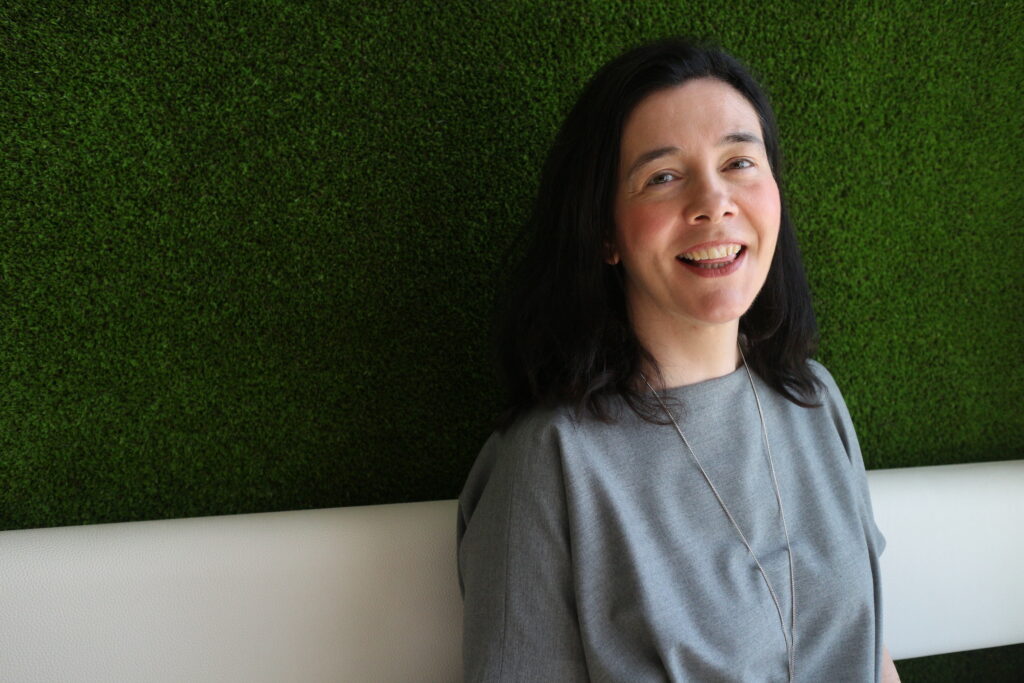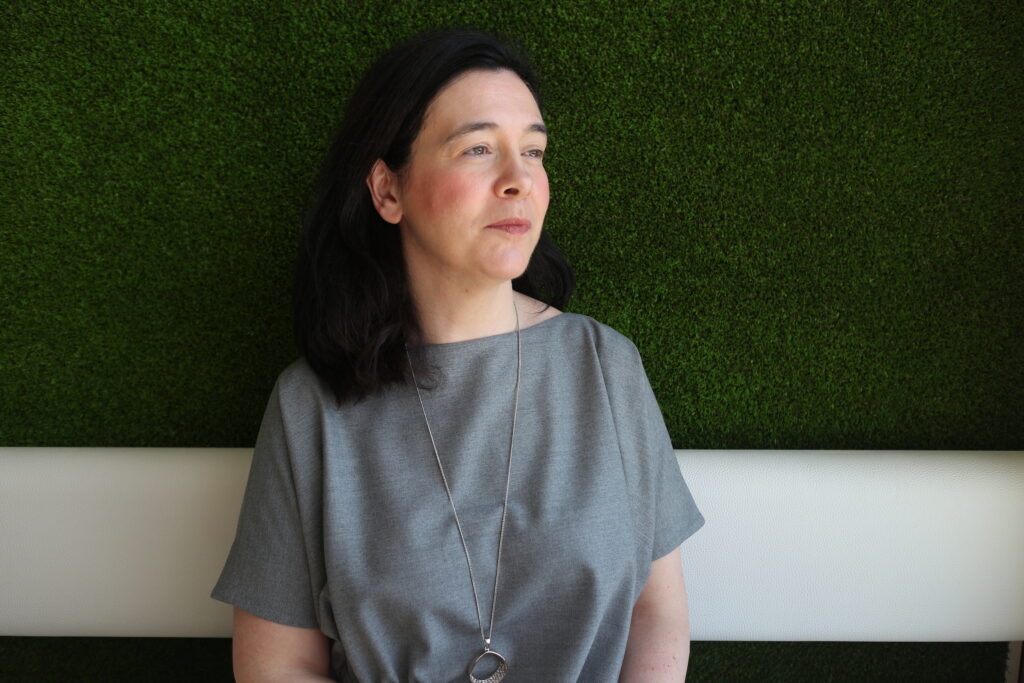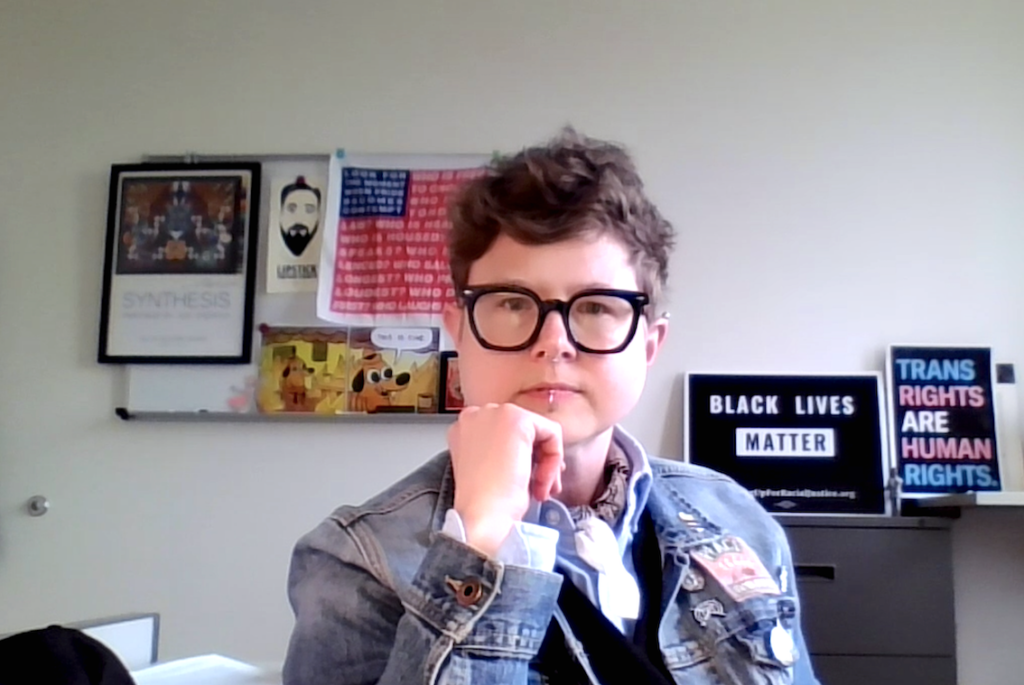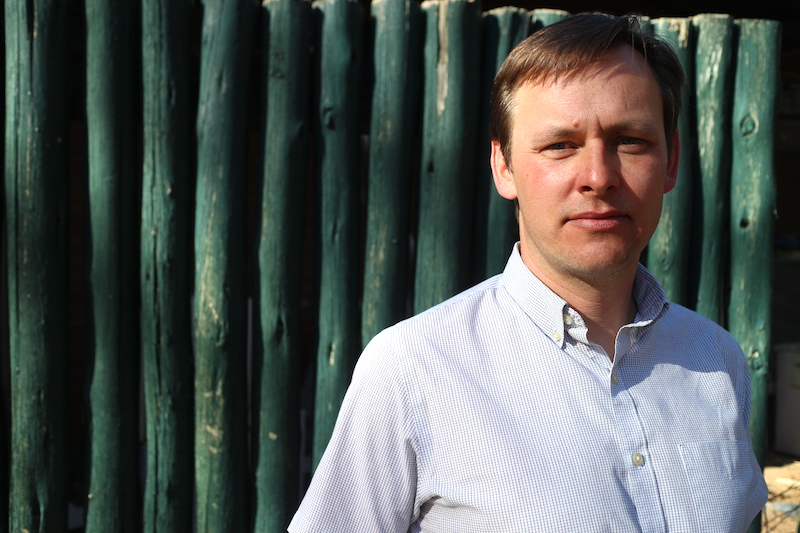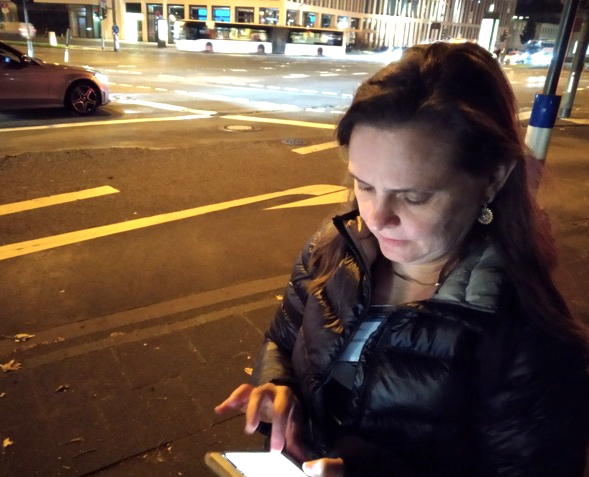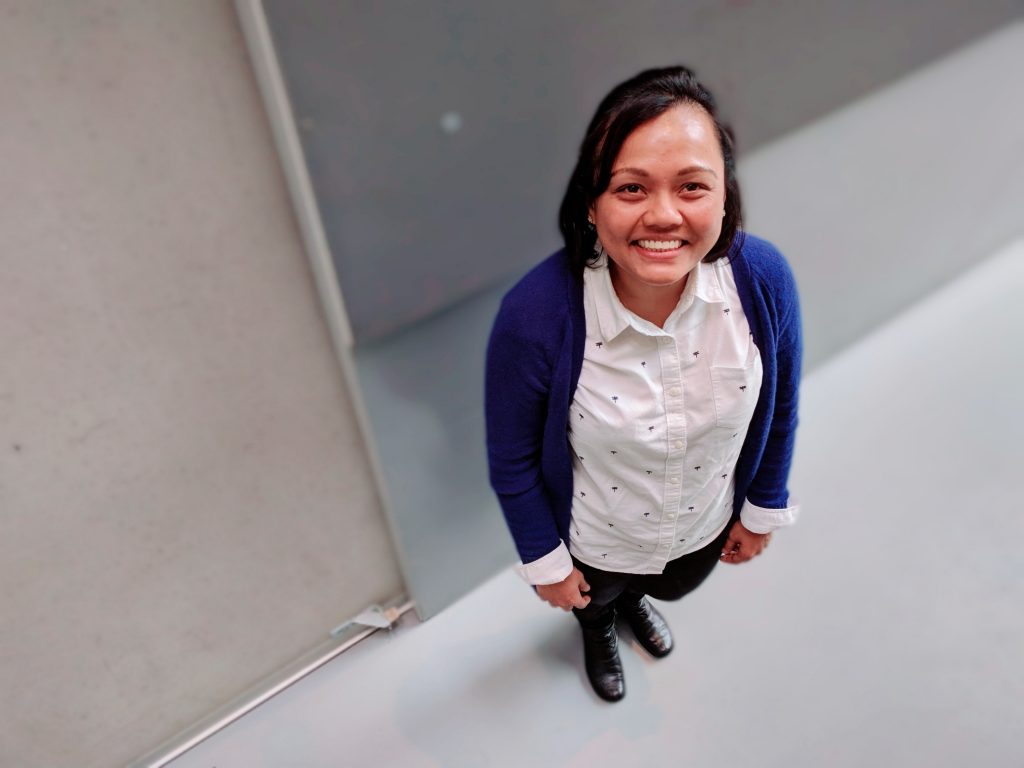 “I think it’s about making a difference in the world. To believe that by working with data and metadata and technologies, and making data available to data scientists, to researchers, but also probably even more importantly to decision makers and policymakers, making high quality data so they can make the right decision – that’s what drives me about working with data, just to make sure whoever has the potential to make the world a better place has the right information in order to be able to make the right decisions. I want to be optimistic. You know, things can be better. But I believe in people. What I find is a lot of data problems can be easily resolved. It’s not a technology problem. It’s not a standards problem. I mean, there’s maybe a data quality problem. But at the end of the day, the biggest problem is change management – people changing the way they work. And resistance to change is the ultimate hurdle. It’s a human problem for sure. That’s the biggest challenge. And that’s why I really like to try to inspire people to see what we can do. Because if you get that energy and passion to make things happen, it’s really worth it. And I think inspiring people is a big thing, as well as to convince them that you should just take one little step at a time because it’s gonna get better if you do it. A lot of the things we’re struggling with today could have been resolved ten years ago or even fifteen years ago, if people would say, ‘Yeah, let’s just do it. Let’s not worry.'”
“I think it’s about making a difference in the world. To believe that by working with data and metadata and technologies, and making data available to data scientists, to researchers, but also probably even more importantly to decision makers and policymakers, making high quality data so they can make the right decision – that’s what drives me about working with data, just to make sure whoever has the potential to make the world a better place has the right information in order to be able to make the right decisions. I want to be optimistic. You know, things can be better. But I believe in people. What I find is a lot of data problems can be easily resolved. It’s not a technology problem. It’s not a standards problem. I mean, there’s maybe a data quality problem. But at the end of the day, the biggest problem is change management – people changing the way they work. And resistance to change is the ultimate hurdle. It’s a human problem for sure. That’s the biggest challenge. And that’s why I really like to try to inspire people to see what we can do. Because if you get that energy and passion to make things happen, it’s really worth it. And I think inspiring people is a big thing, as well as to convince them that you should just take one little step at a time because it’s gonna get better if you do it. A lot of the things we’re struggling with today could have been resolved ten years ago or even fifteen years ago, if people would say, ‘Yeah, let’s just do it. Let’s not worry.'”
Category Archives: Humans of Data
Humans of Data 036
“I’m a librarian and I do feel part of a data community – the library sector is such a strong community, there’s a real sense of identity and belonging. When I travel to CODATA and RDA events I feel like I’m meeting colleagues and friends from across the world, building little data bridges around the globe.”
Humans of Data 035
“It really matters to me that my work contributes to the public good, that people can benefit from what I do. So working to support the sharing of data for re-use, for greater promotion and visibility, so that everyone can benefit from it, is important to me. A lot of my data is cultural data – I find this type of data so inspiring. Sharing a nation’s heritage and culture makes such a unique contribution to all the data available across the world. And how can we encourage research and creativity that builds on that data?”
Humans of Data 034
“There’s an argument out there that scientific data is not biased. But it’s people that decided to collect that data, and it’s people that are deciding what to collect within that and how they’re coding it and what they decide to omit. And data collected about people, we have a tendency to think that that data is going to help them but so many times, it’s not shared back with the community. So many times, it’s just for a publication or a project. I think it would be great if there were more positionality statements with our data to kind of give a little bit extra insight.
That’s kind of what I feel like I bring – that I bring up things and question things, and say why are we doing this? Or have we thought about this? But I’ve also been told that the way that I think about things and talk about things brings more vulnerability, and allows others to be vulnerable. I’m constantly learning. I’ve learned from this data community, everything that I know. I’m in it. I almost like, don’t want people to know that I might not know everything, but it’s so silly, because nobody knows everything. And so if I’m struggling, then I think somebody else might be struggling. That’s why it’s great to have the community because I can go to someone else to talk about this, or to get information. I don’t have to know everything.”
Humans of Data 033
 “So I ask researchers, ‘Can you help me generate this documentation, so others can use it? And so others can cite your data, and help you with that impact that you’re trying to show and share and tell stories about?’
“So I ask researchers, ‘Can you help me generate this documentation, so others can use it? And so others can cite your data, and help you with that impact that you’re trying to show and share and tell stories about?’
It makes my heart happy when I work with a researcher who accepts some of my suggestions. And then they come and they share data again, and they’ve integrated that into their workflow. Those suggestions are now in their workflow. So now we can focus on other things. And how exciting is that, that I get to keep learning about these things? It’s never boring. It’s never ever boring.”
Humans of Data 032
“When I think about how we can better support the sharing and preservation of research data, I think of the challenge we have in moving beyond our individual project-based approaches. Of course, it can be important for discovery to build specialized approaches, but we need to think about changing the entire practice and culture of research. It’s a system-level problem.
And open research data isn’t the same as Open Access publishing. The social justice aspects of open data are not the same as they are for public access to research articles. The Open Data movement can’t move forward on that argument alone. We have to start thinking about how to articulate our own vision for why openness matters. Reuse and auditability are key to our argument. So we need to make sure reuse of datasets is possible, and communicate why that’s important.”
Humans of Data 031
“I get passionate when we can engender system change, and that’s often through policy change. Sometimes that’s top down, but it can also often be bottom-up – it feels good when we can make change by having a community come together.
It’s great to see the data community continuing to broaden, particularly to embrace the importance of software in enhancing data analysis.”
Humans of Data 30
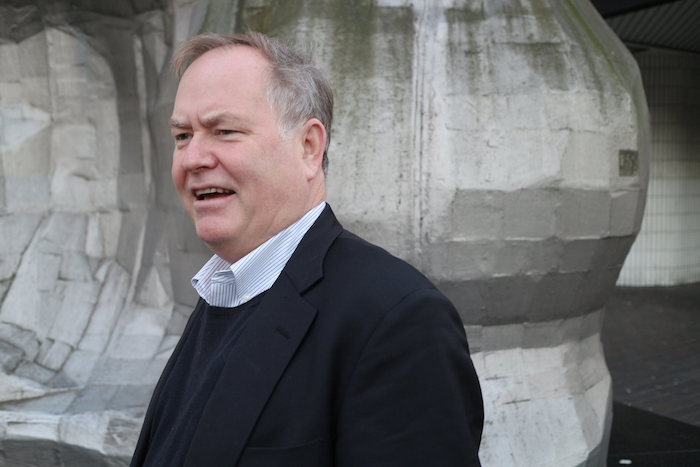 “The things that made me interested in data twenty-five years ago are the same things that make me interested in it now. It’s the way structures and narratives are going to define our culture and who we are. I was interested initially in the historical perspective: how is data going to change the subtlety about how we understand past cultures? And how future generations are going to access data, manipulate it and study it. Very few people were interested in that, and that was exciting. Now I’m a bit scared of it. It’s increasingly clear that we can use data in a contemporary context for social evils.
“The things that made me interested in data twenty-five years ago are the same things that make me interested in it now. It’s the way structures and narratives are going to define our culture and who we are. I was interested initially in the historical perspective: how is data going to change the subtlety about how we understand past cultures? And how future generations are going to access data, manipulate it and study it. Very few people were interested in that, and that was exciting. Now I’m a bit scared of it. It’s increasingly clear that we can use data in a contemporary context for social evils.
Data – and the systems that store it – can be ugly, but they can also be beautiful. Some day, people are going to be interested in the beauty of system architectures and the beauty of database design – or the ugliness. It’s like studying a Gothic cathedral or a contemporary city: the architecture defines how we feel and the narrative that plays out in our lives.
I see emerging possibilities in machine learning, in the blockchain and in other areas. I share an understanding of the risks of data. And I believe that what kind of research you actually do – and how you enable others to be creative to do things – these are equally important. More focus needs to go on developing the community and helping our colleagues to progress and excel. The ways forward in digital curation and data presentation are very much going to come from human collaboration and not from one lone person who’s thought of a technical solution that no-one has thought of before. This is not the field of lone scholars – this is the field of general community effort.”
Humans of Data 29
“I’m a data scientist. One needs to be aware that data is important to do science. But it comes with lots of issues, to make good quality results. It’s not just about collecting data and using it. Any data-driven solutions you try to develop, you need to understand the users and their different roles. A lot of work on the data is not just about the technology. It’s also about the social aspects. It’s not just about setting up a system and saying, ‘The scientists will use it.’
What I learned from my computing science experience is that every domain is different. If you want to develop a computing solution for a domain, you need to get familiar with the user environment, workflows, best practices, language and so on, and it’s important to get familiar with this before coming up with a solution. Every domain I have worked in, I had to get familiar with the practice, so the users will see the computing solution as integrated, and they will use it.”
Humans of Data 28
 “I‘m an ethnographer. Well, I’m not only an ethnographer, but the heftiest part of my dissertation work was ethnography. And as one who also has rigorous training in engineering and other natural science fields – I was surprised at how much of my research design required transformational change.
“I‘m an ethnographer. Well, I’m not only an ethnographer, but the heftiest part of my dissertation work was ethnography. And as one who also has rigorous training in engineering and other natural science fields – I was surprised at how much of my research design required transformational change.
While I did the research – as I collected data – I changed what my hypotheses were, what I’d use the data for and what outcomes I’d obtain from analysing the data. It was simultaneously confusing and exciting, but eventually I was much prouder of the outcomes than I would have been had I stuck to the plan.
It was a lesson in valuing methodological adaptation and change. As researchers, we don’t know everything, and more people in science should have, and value, that experience.”

